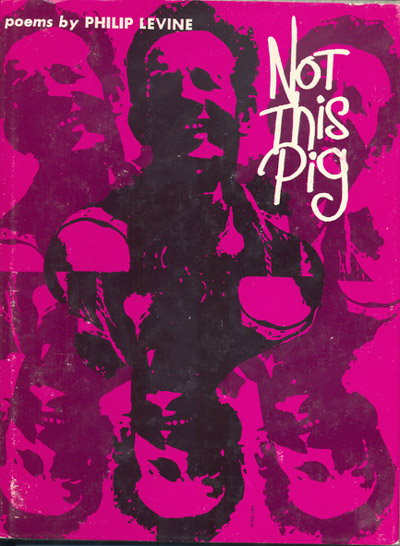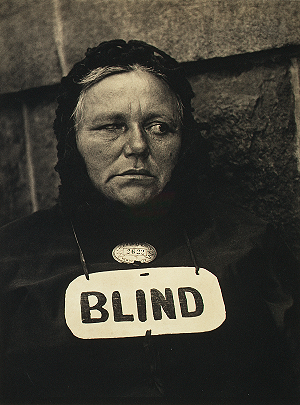A Memoir by Mark Willis
I heard a remarkable poem by Major Jackson that tells the story of a guy who used to walk around his neighborhood pretending that he was a car. “Some Kind of Crazy” ends like this:
We, the faithful, never call
Him crazy, crackbrained, just a little
Touched. It’s all he ever wants:
A car, a girl, a community of believers.
The poem reminded me immediately of Joey. He was a kid in the neighborhood where I grew up. A year older than me., he lived across the street and two houses down. Like Steve in Major Jackson’s poem, everyone knew Joe. He definitely added to the “texture of the neighborhood.” Joe could walk uninvited into half the houses on the block. He’d sit down at the kitchen table and join the conversation or start one if necessary. He was the only person, kid or adult, who could pull that off with bravura. The fact he could do that made us feel like we were a neighborhood. A community of believers. We admired Joe for that.
Joe had Downs syndrome. In the 1950s and 60s we used the euphemism “birth defect” to describe his condition. Or we said he was “retarded.” This was a socially acceptable diagnostic label and, simultaneously, a mean-hearted street-slang epithet, depending on the tone with which it was uttered. More reprehensible was the word “Mongoloid,” which conflated prejudiced misconceptions about both race and disability. Thankfully – and this may be the mercy of memoir at work – the labels dropped away when you knew him. Joe was Joe.
On our block of Penn Avenue there were other handicapped kids. Tim had cerebral palsy. Norman had a speech impediment. Mike survived a car crash that killed his girlfriend when he was a freshman in college. His head injury eclipsed a promising math education and resulted in his untimely death from a stroke several years later. Although we didn’t understand at the time, my sister and I shared a twist in our genes that evolved into our degenerative eye disease. It, too, could have been called a birth defect. That twist in the language troubled my mother deeply. My sister and I were fortunate to grow into our disabilities in the 1970s, when it was an act of political commitment, not the stigmatization of a label, to accept the identity of “person with a disability.”
That was the population of Baby Boom kids with disabilities on one neighborhood block when I was growing up. Remembering the neighborhood now reminds me that a fundamental belief in my disability ethic can be traced back to Joe. Disability is a common part of everyday life; there is nothing very “special” about it, despite all the euphemisms that suggest otherwise. Like Steve in Major Jackson’s poem, it takes all kinds of people, some kind of crazy, to make a community of believers.
When I was about nine years old, a new bicycle fad swept the neighborhood. The bike had a curved, banana-shaped seat with deep, U-shaped handlebars called “ape-hangers.” In a kid’s imagination the bike looked like a Harley chopper. If you scooted to the rear of the seat and pulled back on the handlebars, you could pop a wheelie as you pedaled down the street. Cashing in on the cache of a Corvette brand name, one popular bike was called The Stingray. It could be customized with a noisemaker that looked like a disk brake and sounded like the purr of a motorcycle. The coolest kids got Stingrays. Other kids chopped their old bikes with banana seats and ape-hangers. And you could always emulate the click of pistons in cylinders with a rubber band and playing card thwacking spokes on a spinning wheel.
I didn’t get a Stingray. Neither did Joe. It bothered me a lot more than it bothered him. The same insouciance that led Joe to half the kitchen tables on the block also buffered him from the slings and arrows of social status. Whenever he pumped his old fat-tire bike up Penn Avenue, he stood as he pedaled and sang out lustily. You couldn’t stop him.
One summer day Joe did something that must have amazed everyone who saw it, although maybe I am the only witness. After pedaling up the hill to the top of the block, he paused for dramatic effect and surveyed the scene that fell away below him. Then he kicked off, pedaling twice to pick up speed. Coasting now, he tucked into a tight crouch and leaned left, then right, as the bike glided down the hill in long, graceful arcs. If any mothers saw the spectacle from their houses, they didn’t come out to stop him. As he swept past me, I heard Joe making triumphal sound effects. Not the vroom, vroom, vroom of an imaginary motorcycle. He was swooshing and slishing like Jean-Claude Killy’s skis as he won the giant slalom at Grenoble.
No one on Penn Avenue ever thought of doing that before. Joe was riffing. He was riffing with what he had. He was riffing on who he was. I call it riffing on the genome.
After supper that night I pumped my own bike up the hill. As the fireflies came out, a breeze began to blow along the street. I waited till there were no cars in sight, then I launched on my giant slalom. I felt what Joe had discovered. Instead of plunging downhill in a straight line, you could stretch out and savor the glory by curving patiently from curb to curb. It wasn’t defying gravity, or submitting to it, but using it to make the ride last a little longer. I felt cool wind rush past my face. I knew it didn’t matter whether I could pop a wheelie. I was doing a Joey. That’s what the stunt became in my personal mythology.
Joe was almost twenty the last time I saw him. He came into my mother’s kitchen, greeting her with his customary “Lou, howya doin’?” We had become coffee-drinkers by then. We loaded up the Folgers with enough sugar to leave a syrupy rime at the bottom of the cups. That’s the way our mothers did it. I don’t remember what we talked about. When we’d drained our cups, we scooped up the sugar with our fingers, licking and nodding as if to say, “It’s good. It’s all good.”
Read more essays by Mark Willis.
![gustave_caillebotte_paris_street_rainy_day Gustave Caillebotte. Paris Street, Rainy Day (La Place de l’Europe, temps de pluie). 1877. Oil on canvas. Art Institute of Chicago. [Source: Wikimedia Commons]](../../wp-content/uploads/2009/02/gustave_caillebotte_paris_street_rainy_day_1877_wiki.jpg)
![Fog at Isle Royale [Source: wildmengoneborneo.com] Fog at Isle Royale [Source: wildmengoneborneo.com]](../../wp-content/uploads/2008/04/isle_royale_fog.jpg)
 If there is an emerging genetic underclass, I could run for class president or class clown. Read more in
If there is an emerging genetic underclass, I could run for class president or class clown. Read more in 

Pingback: a blind flaneur » Doing the Joey in a Community of Believers